MEMOIR
Malachy McCourt’s new memoir Singing My Him Song picks up where his best-seller A Monk Swimming left off. As the old saying goes, you’ll laugh and you’ll cry, right along with Malachy, as we follow the actor/raconteur from Hollywood to Broadway, as he boozes, befriends famous men, and bucks the system.
In his latest book, there’s plenty of partying with fellow Limerick actor Richard Harris (with whom he’s since had a falling out) and a behind-the-scenes look at the likes of Sean Connery.
Still, McCourt makes it clear that his tough times in Limerick did not end once he finally arrived in America.
As his latest book begins, in the early 1960s, the author is “behind bars,” that is, serving up drinks as a pub owner. Quickly there are battles with drugs and alcohol. “Of the bad habits available, I missed very few,” McCourt writes. He nearly loses his beloved wife, Diana, in the process.
And despite his own well-documented carousing, McCourt also confesses to being a “Victorian-cum-Pharisee” when it came to his son Malachy Jr.’s troubles. This all comes to a head in one of Singing My Him Song’s most heartrending sections, when Malachy Jr. is shot in a street fight and lies in a hospital “almost lifeless,” as McCourt writes.
McCourt also writes about his battle (along with an up-and-coming journalist named Geraldo Rivera) to close the Willowbrook State School on Staten Island, where the McCourts were looking to enroll their developmentally disabled daughter.
Despite (or perhaps because of) all the hard times, however, Singing My Him Song makes it clear that no one understands the value of laughter better than Malachy McCourt. (Hardcover $25)
_______________
No Tears in Ireland might sound like yet another glum Irish memoir. The twist here is that it is written by a onetime French aristocrat. The proceedings, however, are still quite grim, and not a few readers are going to be turned off by (yet another) depiction of mid-20th-century Ireland as a backward, oppressive place.
Author Sylvia Couturié (at the time 11) and her eight-year-old sister set out to take a vacation from their upper-class lives with their Irish nanny in 1939. They obviously couldn’t have chosen a worse time to go to Ireland, with war breaking out in Europe. Though neutral, Ireland was deeply affected by the rampaging war. Meanwhile, the Couturié sisters, trapped in a remote Irish village, wage their own war with their Irish nanny, whose mental health is deteriorating.
Unfortunately, she also represents a lot of “backward” Irish stereotypes. Worse yet, this all unfolds through the eyes of a narrator with unfailing faith in Winston Churchill and the British.
One can’t doubt the sincerity and pain of Couturié’s recollections. But be warned. No Tears in Ireland could induce tears of rage in some Irish readers. (Hardcover $24)
NON-FICTION
Kevin C. Kearns has produced an exciting, accessible and valuable new history book with Dublin Tenement Life: An Oral History. In these Celtic Tiger days this, too, may sound like yet another melancholy tumble back into Ireland’s poor, poor past.
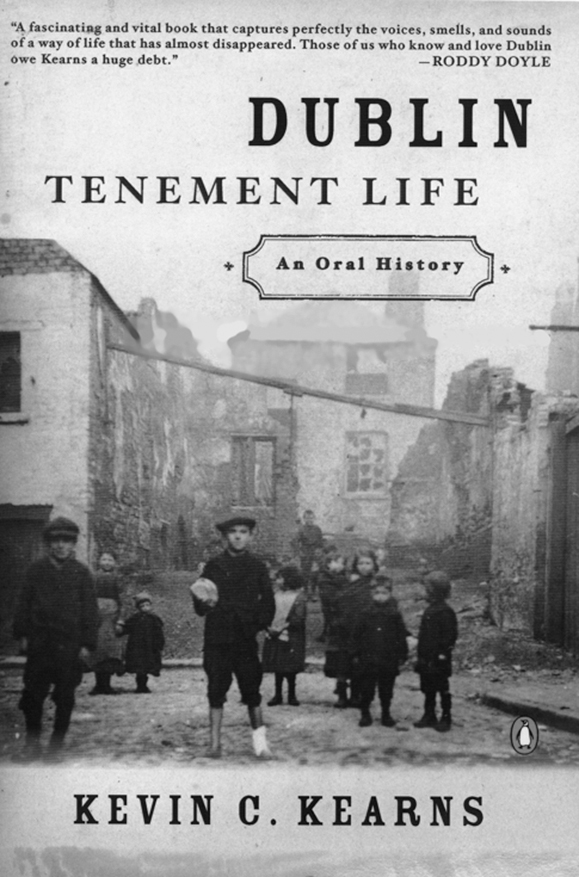
But the range of material gathered here – from first-hand accounts to photographs – is enlightening and compelling. Irish audiences certainly thought so, as they made Kearns’ book a best-seller when it was released over there.
Just look at the numbers: In 1900, there were more than 6,000 tenement houses in Dublin, and one-third of the population lived in them. Over 111,000 people lived there around 1940. That contemporary Irish writers like Roddy Doyle are still mining this terrain shows how prominent this environment remains in Irish life. Kearns – Professor Emeritus at the University of Northern Colorado – explores all aspects of tenement life from prostitution, food and religion to courting, death and stereotypes. He has captured the fascinating geography, architecture and (most importantly) psychology of Dublin’s slums from the early 1800s into the 20th century. (Softcover $15)
_______________
History on the grand scale, meanwhile, is what Daniel Murphy has produced with A History of Irish Emigrant and Missionary Education. If that sounds ambitious, it is. Murphy (a Senior Lecturer in Education as well as a Trinity College Dublin fellow, who died in 1998) traces Irish education back some 1500 years, and even earlier, when he outlines how Bardic and Druidic traditions helped create a distinctly Irish form of education.
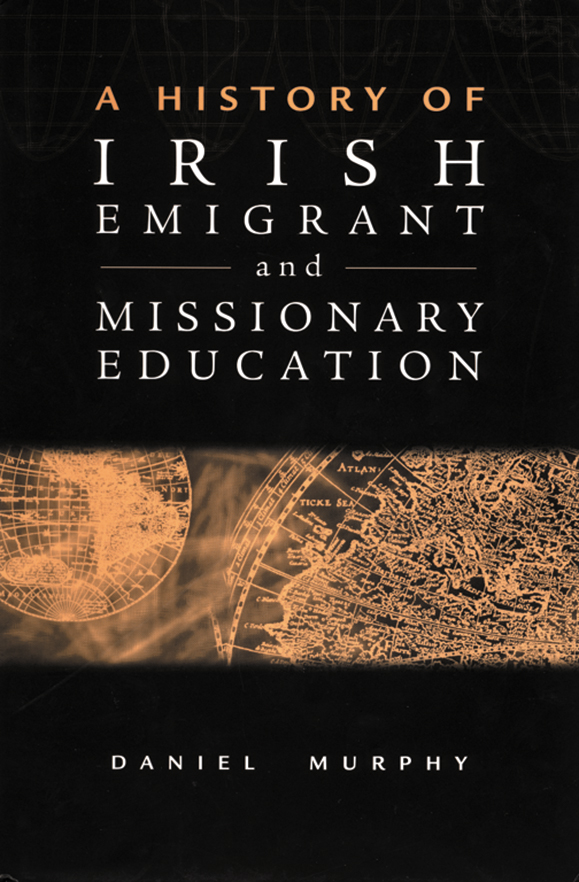
Murphy largely focuses on Britain, North America and Australia, though by the 19th century he also reports on work done in Africa and Asia. The section on the formation of the U.S. Catholic school system is solid, though just a small part of Murphy’s grand task. An excellent, weighty (and pricey) addition to any Irish scholarly library. (Hardcover $55)
CRIME AND MYSTERY
Seventh-century Ireland and 1960s Chicago are the settings for two diverse new mystery and crime books.
First, Peter Tremayne is back with another Sister Fidelma novel, his eighth. In The Monk Who Vanished: A Celtic Mystery, Tremayne flaunts all of the smarts that have made him one of the most prominent authorities on the ancient Celts, all the while stringing together an engrossing plot.
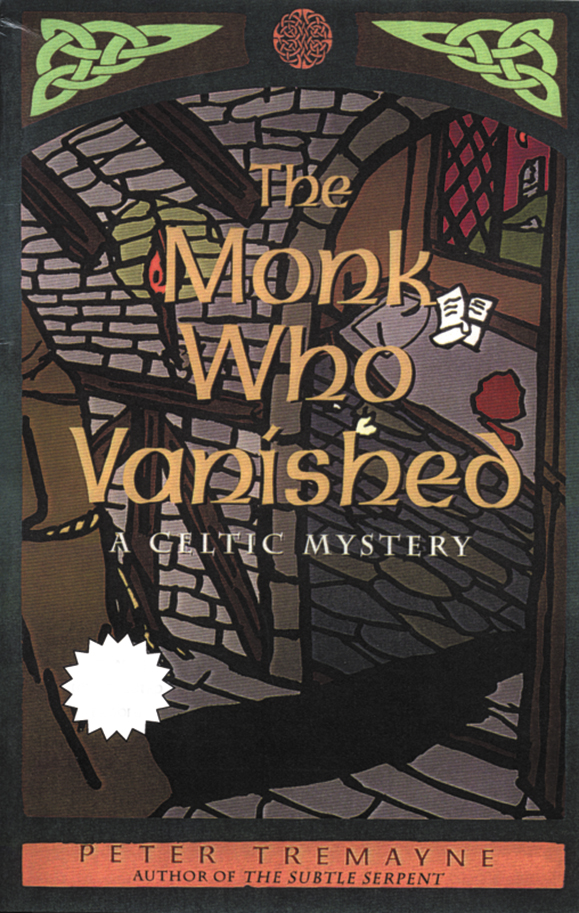
Priceless relics of political importance have disappeared, along with the titular monk, developments which threaten to plunge the varying Irish kingdoms into instability or outright warfare.
Sister Fidelma, of course, gets on the case, and while The Monk Who Vanished is a bit predictable, Tremayne’s loyal fans will not be disappointed by either the plot, or the author’s attention to details. (Hardcover $23.95)
_______________
Fast forward 13 centuries to “Michael John Corrigan…born and raised on the South Side of Chicago to two Irish immigrant parents who had emigrated to this country from Dublin some fifteen years before his birth.”
In Dennis Banahan’s thriller Threshold of Pain, Corrigan and his partner Johnnie Parello are members of an elite undercover police unit who stumble upon evidence which may link one University of Chicago student to the assassinations of both Martin Luther King Jr. and Bobby Kennedy.
This thriller has a fair dose of blarney (Corrigan has a face on which “the map of Ireland was prominently stamped,” and he married his high school sweetheart Mary Kathleen O’Herlihy) and standard potboiler prose. Still, as a retired Chicago detective, Banahan brings obvious expertise and nuance to this book, which in its own way is a revisionist look at the 1960s. That is, it takes a hard look at both radicals and “establishment” authority figures. (Hardcover $28.95)
FICTION
It’s not often you see a novel written by two authors, but at least the scribes behind The Accidental Pope each know their business.
First there’s Ray Flynn, former Mayor of Boston and U.S. Ambassador to the Vatican. Then there’s Robin Moore, best-selling author of page-tamers turned hit-movies such as The Green Berets and The French Connection.
All of which may help readers swallow what is, shall we say, an unlikely plot.
It seems that upon the death of Pope John Paul II, the College of Cardinals in Rome is deadlocked and cannot select a new pontiff. When a leading candidate (the Primate of All Ireland) drops out, he does so using an anecdote about Bill Kelly, a onetime priest and fisherman now living in Massachusetts.
Do you see where this is going? As a ruse, many of the cardinals cast votes for Kelly – who, when the counting is all done, becomes the title character.
It stretches credulity, sure, but Flynn provides plenty of authentic Vatican intrigue, while Moore is able to keep the story moving along. If you can accept the premise, you should find enough suspense (and humor) between the covers of The Accidental Pope. (Hardcover $24.95)
_______________
Meanwhile, Irish literary superstar Patrick McCabe still likes his material dark, surreal and absurd. Coming off his experimental collection of odd tales Mondo Desperado, McCabe returns to long-form fiction with the aptly-titled Emerald Germs of Ireland.
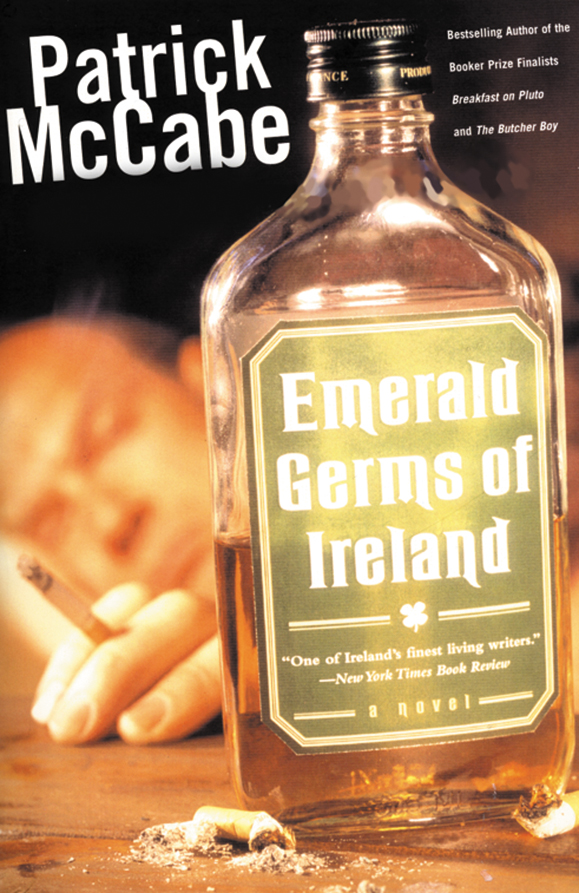
McCabe returns to the familiar turf of small-town Ireland, in which snoopy neighbors and murderous loners walk side by side. That is, until events becomes so twisted and hallucinatory that it’s tough to distinguish the nightmare from the reality. Not for the squeamish – but Pat McCabe never is. (Eerily, the name of the Norman Bates-ish protagonist in Emerald Germs – Pat McNab – bears a striking resemblance to the author’s. Make of it what you will.) (Hardcover $25)
_______________
The Irish war for independence continues to inspire novelists. Cathal Liam is the latest. “Born of stout Irish, Scottish and English stock” (as the book jacket reads), Liam currently lives in “Amerikay,” but has an obvious obsession with Ireland. This pays off in the solid historical detail of his first novel Consumed in Freedom’s Flame: A Novel of Ireland’s Struggle for Freedom 1916 – 1921. Unfortunately, the history here is also familiar, and the fictional sections don’t quite make up for Liam’s occasionally excessive length. Still, a solid book to read if it’s your first fact/fiction novel on the events of 1916 – 1921.
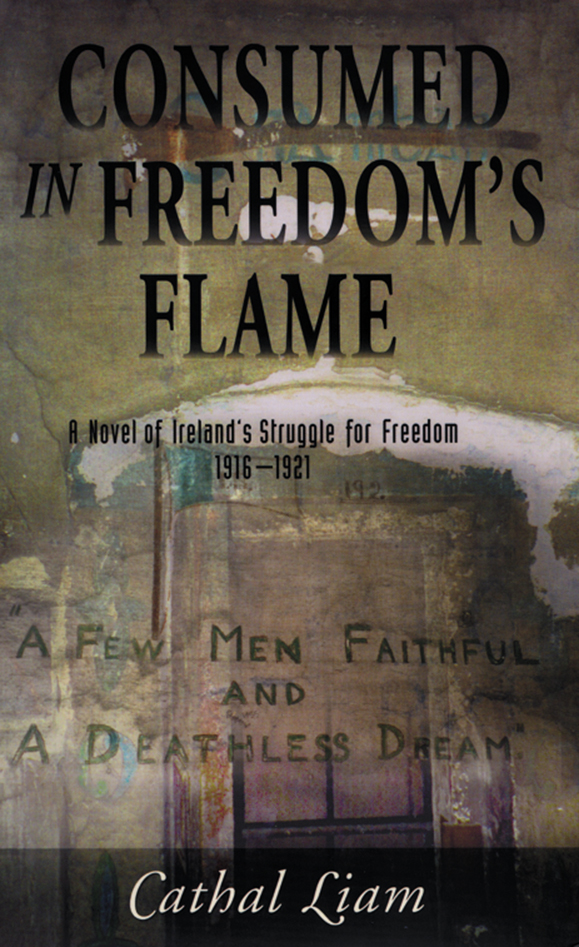
On the other hand, you could wait for the next book from Morgan Llewelyn, who has made this genre her own. Due out in March, 1921 is the follow-up to Llewelyn’s 1916, and is book number two in a planned cycle of five books on Ireland in the 20th century. Ambitious and enlightening, Llewelyn probably sets the standard for conventional historical fiction. (Hardcover $25.95) (Not to be confused with Roddy Doyle’s ongoing, slightly post-modern take on Irish history, which began with A Star Called Henry.) ♦

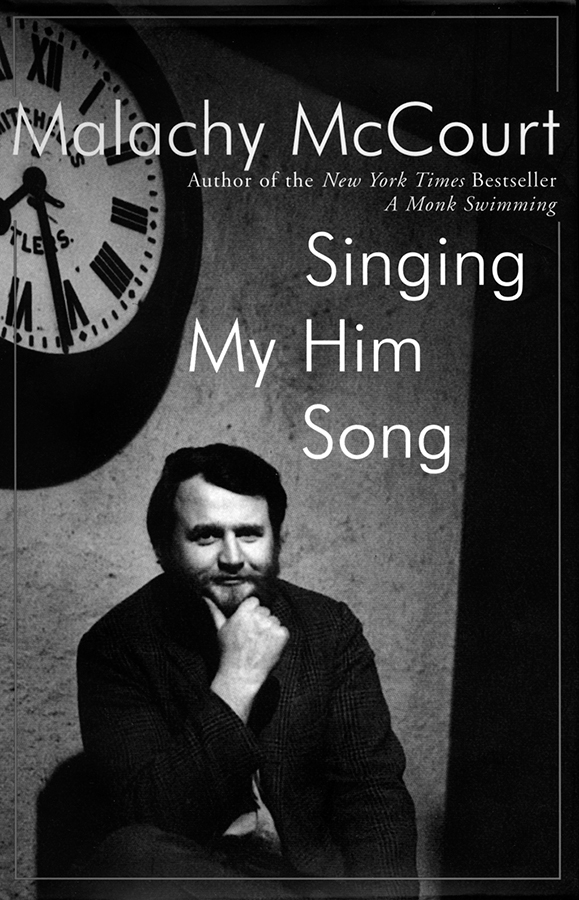
Leave a Reply